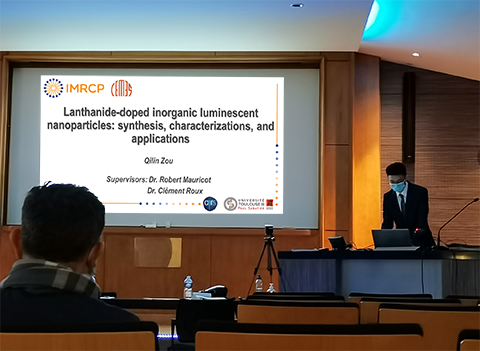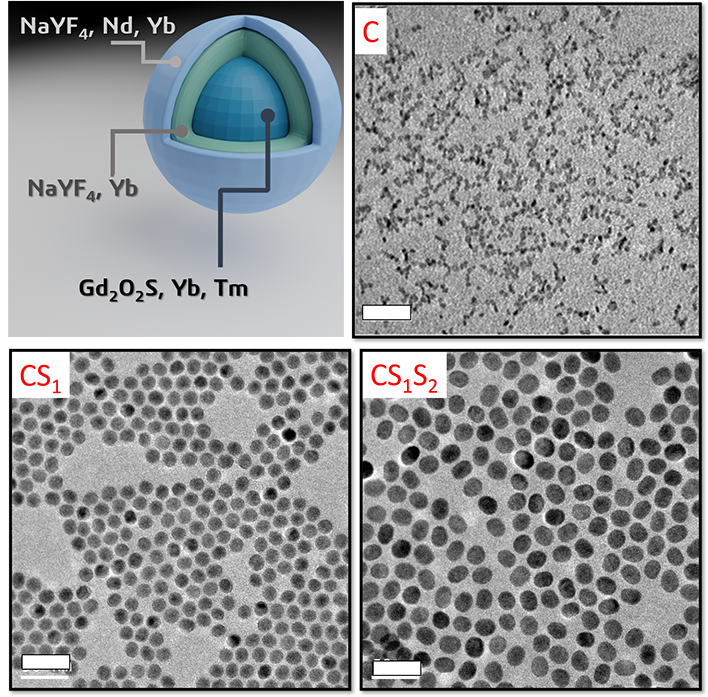Qilin Zou, PhD student at IMRCP, has defended his thesis on the development of core-shell nanoparticles as contrast agents for bioimaging

Qilin carried out his research between the IDeAS team at the IMRCP laboratory and CEMES.
On 28th January, he defended his thesis entitled: "Lanthanide-doped inorganic luminescent nanoparticles: synthesis, characterizations, and applications"
 The project was focused on the synthesis and characterization of oxysulfide nanoparticles doped with lanthanide ions.
The project was focused on the synthesis and characterization of oxysulfide nanoparticles doped with lanthanide ions.
His main objectives were to develop a versatile strategy for the synthesis of ultra-small rare earth oxylsulfide nanocrystals. Doping these nanocrystals with the relevant ions (Gd3+, Nd3+, Yb3+/Tm3+), provided them with contrasting capabilities in various imaging modes : Gd for magnetic resonance, Nd and Yb/Tm for luminescence in the near infrared (downconversion and upconversion, respectively).
Besides, Qilin showed that these crystals yield contrast in X-ray computed tomography (they are rich in heavy elements), as well as photoacoustic imaging.
Very importantly, he discovered that these core-shell nanoobjects can be used as very sensitive nanothermometers, operating in the first near infrared window.
Scheme and transmission electronic microscopy images of core and core-shell(s) nanocrystals
© Q. Zou & C. Roux - CEMES / IMRCP
Highlights of the thesis:
- Qilin was awarded a scholarship by the German agency DAAD, to spend two months with the biophotonics team of Dr Resch Genger in Berlin;
- The very good results obtained by Qilin were instrumental in obtaining ANR funding for the NanoFBI project, which began in January 2022.
Congratulations to Qilin for the quality of his work!


